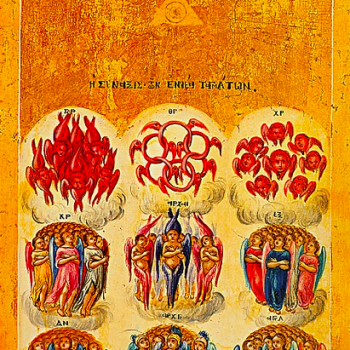I was slow to react to the news of Osama bin Laden's murder last week, even as the social media networks exploded with opinions from across the theological, political, and ideological spectrum. Among Christians, the debate quickly coalesced around two camps. One group insisted that people of faith should not be cheering the death of anyone, even a professed mass murderer. The other camp declared that it was perfectly legitimate to celebrate the vanquishing of evil and the end of a person who had caused so much suffering. Each group was able to find ample scriptural cover to argue their case and there seemed to be no shortage of Twitter posts, blog essays, and Facebook updates to loudly proclaim who held the higher moral ground. But in our rush to judgment, had we missed the most important issue of all?
This week I invited the youth in my church to respond to this debate. I was pleasantly surprised to find that none of them were eager to charge up the hill of faith with either the banner of pacifist peace or the banner of righteous judgment. Instead they clearly felt the whole situation was too complex for quick and easy answers. The questions they offered suggested they were struggling with some ambiguities: Was bin Laden actually still a threat to us or was he just a figurehead? And if it was he was just a figurehead, were we justified in assassinating him? Did killing him actually solve anything? What might the other side do now in retaliation? Can our government get in trouble for murdering a foreign citizen? What happens next in this seemingly unending war on terror?
I chose to muddle the waters even more thoroughly by inviting the youth to explore a multitude of biblical texts that speak to the very issue of how we are to relate to our enemies. It will come as no surprise, I hope, that while some of the texts insisted one should not take delight in the death of the wicked, others depicted our spiritual ancestors celebrating the annihilation of evil doers. Some texts argued we are to love our enemies while others proclaimed that the government is ordained by God to do whatever it deems necessary (including, presumably, use of the death penalty).
It was clear, to us anyway, that the biblical texts are not of one mind on the question of inflicting death on others. But was this really the issue to which we should be giving our attention? On this side of Easter, when we confront the world's obsession with death and violence, are we not called to discern how God calls us to participate in bringing life? Rather than debating how much latitude faithful people have for participating in death, shouldn't we be joining together to find ways to birth new life into this fractured world? Isn't that the challenge we need to be placing before our youth?
In the excellent documentary, Beyond Belief, filmmaker Beth Murphy introduces us to Patti Quigley and Susan Retik, two American widows grieving the loss of their husbands who were killed during the terrorist attacks on September 11, 2011. Even as these women work through their own grief and loss, they come to the realization that the U.S. attacks on Afghanistan are creating even more widows, even more innocent children who will grow up without fathers, adding to the over 500,000 widows already in existence in that country after decades of war, poverty, and hunger. Rather than directing their anger, rage, or desire for vengeance on the people of Afghanistan (the route our government chose), Patti and Susan decide to reach out to their fellow widows in the Middle East with solidarity, hands-on economic support, and love. Though the world tells these two women they are completely within their rights to demand death, they choose instead to inspire new life.
So as some may cheer on the Navy Seals who put an end to bin Laden's power to cause death or our President in his efforts to use murder to put an end to violence, I choose instead to lead the youth in my care to people like Patti and Susan who are living the Easter story and who put their trust in the ability of forgiveness and love to bring healing to a violent world. Can this way of life really bring lasting change? Who knows? Has it ever really been tried?
5/10/2011 4:00:00 AM





